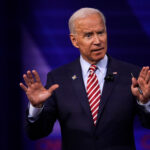Source: Twitter
The Consequences of Inciting Violence: A Case Study on the Threats Against Former President Trump
In recent weeks, the political landscape of the United States has been rattled by incidents of extreme rhetoric and violence. A significant portion of this turmoil revolves around former President Donald Trump. The controversy reached a boiling point with the assassination attempt on Trump during a campaign rally in Butler, Pennsylvania. This event has sparked debates about the consequences of threatening or wishing harm on political figures and the role of rhetoric in inciting violence.
The Incident and Its Aftermath
On July 13, 2024, former President Donald Trump survived an assassination attempt at a campaign rally. The attack left a firefighter dead, two spectators critically injured, and caused widespread panic among attendees. The assailant, described as a radical leftist, was killed during the chaos. This incident has prompted severe reactions from both sides of the political spectrum.
The Role of Rhetoric in Political Violence
The aftermath of the assassination attempt has reignited discussions about the power of political rhetoric. Notably, Republicans have pointed fingers at Democrats, accusing them of fostering a climate of violence through their incendiary language. One example is the Twitter account of CJ Pearson, which highlighted a tweet by Harry J. Sisson allegedly calling for Trump’s assassination. Pearson’s tweet, which was later deleted, accused liberals like Sisson of inciting violence and demanded immediate investigations by the Secret Service.
Comparisons to Historical Dictators
One particularly inflammatory comparison that has gained traction is equating Trump to Adolf Hitler. This analogy, used by several Democratic leaders, has been criticized for being not only historically inaccurate but also dangerously provocative. For instance, comments made by former WWE World Champion and Mayor of Knox County, Tennessee, Kane, linked the violent incident to such comparisons, emphasizing the dangerous consequences of extreme rhetoric.
High-Profile Statements and Their Impact
Prominent Democratic figures, including President Joe Biden and Hillary Clinton, have made strong statements against Trump. President Biden was reported saying, “I have one job, which is to beat Trump. I am the best candidate. We’re done with the debate; it’s time to put Trump in the bullseye.” Although Biden’s statement was likely metaphorical, it has been interpreted by some as incitement to violence.
Similarly, Hillary Clinton and other Democratic leaders have often drawn parallels between Trump and various dictators, which Republicans argue exacerbates tensions and encourages violent actions. These high-profile statements, combined with the already polarized political climate, create a volatile environment where words can have deadly consequences.
Legal and Ethical Considerations
The use of violent rhetoric in politics raises significant legal and ethical questions. In many countries, threatening a political figure or calling for their assassination would result in severe legal repercussions, including imprisonment. The United States, however, has robust protections for free speech under the First Amendment, complicating the legal landscape.
For instance, in countries with stricter laws on speech, such as Germany or the United Kingdom, individuals making threats against a political leader would likely face immediate arrest and prosecution. These nations take a hardline approach to such rhetoric to prevent the escalation into actual violence. Comparing these international standards to the American context highlights the tension between protecting free speech and ensuring public safety.
The Need for Accountability and Restraint
The assassination attempt on Trump and the preceding inflammatory rhetoric underscore the urgent need for accountability and restraint in political discourse. Politicians and public figures have a responsibility to consider the potential impact of their words. Incendiary language, especially when it suggests violence or likens political opponents to notorious historical figures, can have real-world consequences.
Calls for violence, whether explicit or implicit, must be addressed with appropriate seriousness. This includes thorough investigations by law enforcement agencies, like the Secret Service, into threats made against political figures. Moreover, there should be a concerted effort to tone down the rhetoric on all sides of the political spectrum.
Political Reactions and Moving Forward
In the wake of the assassination attempt, Republicans have demanded accountability from Democrats for their perceived role in nurturing a climate of violence. They argue that the extreme language used by Trump’s opponents directly contributed to the attack. This has led to calls for stricter measures to curb violent rhetoric in political discourse.
Moving forward, it is crucial for both parties to engage in constructive dialogue and to condemn violence unequivocally. Political leaders must lead by example, promoting respectful and peaceful discourse. This includes refraining from hyperbolic and incendiary comparisons, which serve only to deepen divisions and incite unrest.
The assassination attempt on former President Donald Trump serves as a stark reminder of the power of words and the responsibilities that come with political influence. As the nation grapples with the fallout, it is imperative to strike a balance between protecting free speech and preventing violence. By fostering a culture of accountability and restraint in political rhetoric, we can work towards a more peaceful and constructive political environment. The lessons from this incident should serve as a catalyst for change, emphasizing the importance of respectful and responsible discourse in preserving the democratic ideals of the United States.





